New chief to lead safety drive
Will the arrival of Lord Browne’s replacement mean an end to BP’s troubles? This month marked the climax of a tough period for the UK oil giant. An independent panel, led by former US Secretary of State James Baker, published the findings of its investigation into safety measures at the company’s five US refineries. Their report highlighted operational safety problems.
The investigation was called for after an explosion at BP’s Texas City refinery killed 15 people and injured 170. This tragedy was followed in 2006 by an oil spill from a portion of the company’s Alaskan pipeline, leaving the company’s US reputation bruised.
As the panel’s recommendations were announced, BP chief executive Lord John Browne said that he would step down in July 2007, 17 months earlier than planned. This has led to speculation of internal pressure on Lord Browne to leave now, to mark a fresh start as the company embarks on serious damage control. He will be replaced by Tony Hayward, head of BP’s exploration and production. BP has denied that Browne’s departure was timed to coincide with the publication of the report.
The report reviewed all five of BP’s US refineries and concluded that, although the company worked to achieve high levels of personal safety among staff, it fell short in maintaining process safety. The Texas explosion was attributed to a failure by staff to follow procedures. It also pointed to a number of cases of staff being overworked. A former manager at BP told Chemistry World that personal safety was always paramount at the company, to the point where very strict rules and guidelines about ’holding onto handrails when walking down stairs’, were derided. But, he stressed, ’there is a big difference between personal and process safety’. A spokesperson for BP, David Nicholas, told Chemistry World that improvements to operational safety were underway and had been initiated over 18 months ago under the direction of Lord Browne. ’This report is extremely helpful,’ he said.
GSK pays big for cancer drug
UK pharmaceutical giant GlaxoSmithKline has signed a licensing deal worth $2.1 billion (?1.1 billion) for a late-stage cancer drug developed by Danish firm Genmab. The monoclonal antibody, HuMax- CD20, is already in Phase III clinical trials for treatment of non-Hodgkin’s lymphoma and a type of leukaemia. The same drug is also in Phase II trials as a treatment for rheumatoid arthritis. The deal includes a $102 million up-front payment and the purchase of a $357 million stake in Genmab.
Merger investigation
The acquisition of UK company GV Instruments by US Thermo Electron Manufacturing has prompted the Office of fair trading to ask the Competition Commission (CC) to investigate.
The CC has been asked to decide if this merger could result in the substantial reduction of competition in the UK market for mass spectrometers produced by both companies. The commission is expected to report by 31 May 2007.
Merck’s drug merger
Nerck has completed a $14 billion acquisition of the Swiss biopharmaceutical company Serono. The US giant will rename its drug operations Merck Serono, which will have headquarters in Geneva, Switzerland.
At the same time, Merck confirmed that it was considering the sale of its generics division. The list of potential buyers currently building their respective generics businesses includes Switzerland’s Novartis and Israel’s Teva pharmaceutical industries.
Nanobodies: hope for Alzheimer’s
German pharmaceutical company Boehringer Ingelheim has signed a $265 million (?135 million) licencing deal with Belgian company Ablynx, to develop new therapeutic agents for Alzheimer’s disease. Their new research collaboration will use Ablynx’s novel therapeutic proteins called nanobodies to deliver drugs across the blood-brain barrier.
Electronic plastic paper
UK electronics manufacturer Plastic Logic has announced plans to build a new facility for the manufacture of its active matrix display modules. The company claim that these electronic modules will allow users to download books and newspapers onto thin, flexible plastic film, similar to paper.
Turning to biofuels
Global agricultural business giant Syngenta is restructuring an existing deal with US biotech partner Diversa, to shift the focus of their joint project to the development of biofuels. The two companies signed an R&D pact in 2003, with Syngenta agreeing to provide $118 million of funding over seven years.
The revised project will concentrate on the conversion of cellulose biomass from plants that can be fermented into fuels such as ethanol.
Umbilical cord-blood transplant
Corcell, a US umbilical cord blood bank, has announced the first successful transplantation of cord blood to treat childhood leukaemia. According to the company, this is the first evidence that a child’s cord blood, stored from birth, can be used to treat the condition. A three year old girl was transplanted with her own stored umbilical cord blood following a relapse. The girl, now aged six, is reportedly still free of the condition.
False weight-loss claims admitted
German pharmaceutical giant Bayer has agreed to pay the US government $3.2 million to settle allegations of false weight-loss advertising claims, according to the Federal Trade Commission.
The settlement involves Bayer’s One-A-Day WeightSmart multi-vitamin.
A number of smaller companies were involved in the same settlement for their diet pills, which included CortiSlim, TrimSpa and Xenadrine EFX.
The payment was made to settle Federal Trade Commission allegations that advertisements for One-A-Day WeightSmart multivitamins violated an earlier agency order requiring all health claims for one-a-day brand vitamins to be supported by scientific evidence.
Chinese factories profiting from carbon credits
The Chinese chemical industry is making huge profits from the sale of carbon credits, permitted under a loophole in the Kyoto protocol. Chemical plants that reduce the amount of hydrofluorocarbon (HFC) greenhouse gases they release into the atmosphere receive credits that can be traded on the international carbon market. Several Chinese factories have received credits for installing caustic scrubbers to reduce emissions of acidic HFC gases, according to the Financial Times. Installation of the equipment is relatively cheap - equivalent to around ?5-?15 million per factory - but can earn the factory millions of carbon credits which can be sold to developed countries that have agreed to reduce their carbon emissions. Critics have questioned the wisdom of allowing the industry to profit from carbon trading in this way. Under current plans, from 2008, companies covered by the EU’s emissions trading scheme will also be able to buy carbon credits from developing countries.
CO2 will be buried at sea
An amendment to the London Protocol, an international convention on marine waste disposal, means that from 10 February of this year CO2 emissions can be stored under the sea. But critics say that businesses are not being offered a financial incentive to sequester carbon in the depths. Under current EU carbon-trading schemes, it is cheaper to burn coal and pay for permits, according to a report in Chemistry and Industry.
BASF sells South Korean stake
BASF sparked claims that it wants to exit the South Korean petrochemicals market after it sold its 14.36 per cent stake in explosives manufacturer Hanwha Chemical. It was sold back to its parent company, Hanwha, for a reported €100 million (£66 million). BASF has described the deal as an interim financing agreement and said that the company is still committed to South Korea.
Glaxo and Merck vaccine contest
UK and US drug companies plan to go head to head in the latest clinical trial of their respective cervical cancer vaccines. GlaxoSmithKline(GSK) will pit its experimental vaccine Cervarix against Merck’s Gardasil.
The study will test the immune responses of women between the ages of 18 and 26 to two strains of the human papillomavirus.
Human papillomavirus is reported to cause 70 per cent of cervical cancers. The women in the trials will be divided into groups that receive either GSK’s Cervarix or Merck’s Gardasil.
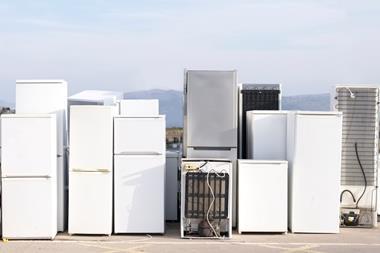
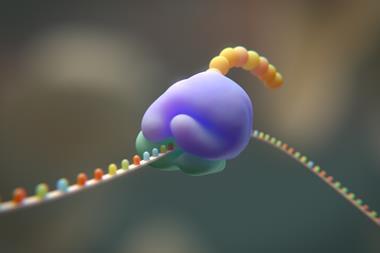



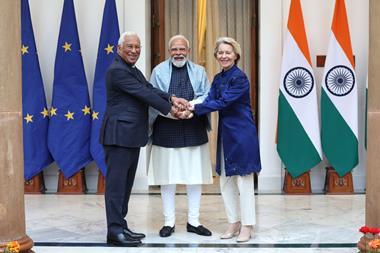

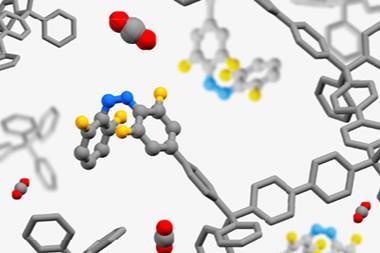
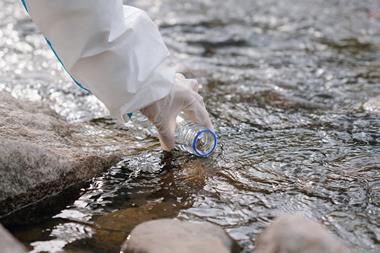



No comments yet